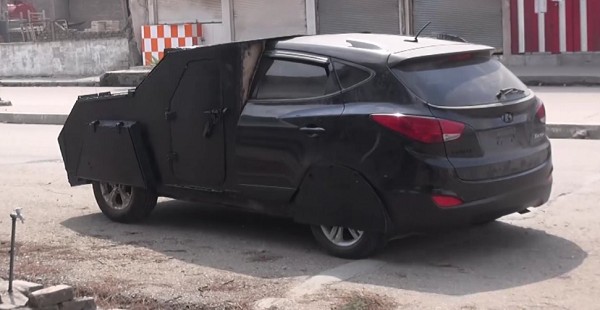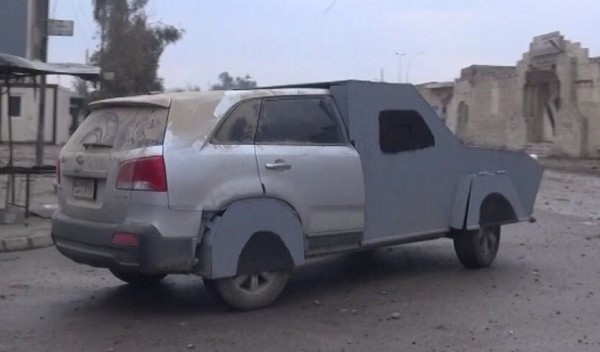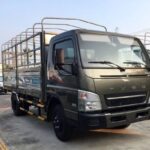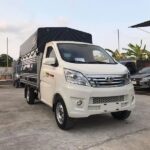Images of Hyundai and Kia trucks rampant on the streets of Mosul in ISIS propaganda videos and photos taken by the Iraqi government raise questions about the origin of these vehicles and the fate of Mosul civilians. Most are 2010-2015 SUV models reinforced with steel plating, suggesting they may be used in suicide bombings.
 Hyundai Tucson used by ISIS terrorists
Hyundai Tucson used by ISIS terrorists
Hyundai, Kia SUVs: Unintended Weapons on the Mosul Battlefield?
The off-road advantages of SUVs, especially 4-wheel drive and robust suspension systems, allow them to carry hundreds of kilograms of explosives, making them a choice for ISIS. Compared to pickup trucks like the Toyota Hilux, the rear cargo area of SUVs is more discreet, making it harder to detect by drones. Meanwhile, the Hilux is more easily exposed and is often mounted with machine guns, suitable for combat rather than suicide bombings.
Origin of Hyundai, Kia Vehicles: An Unanswered Question
The appearance of many Hyundai and Kia SUVs controlled by ISIS raises questions about their origin. Kia confirmed it had two dealerships in Mosul in 2012 but withdrew when ISIS attacked the city in June 2014. They denied being robbed by force and did not disclose the number of cars that had been delivered here.
Hyundai, one of the first automakers to establish dealerships in Iraq in 2004, continued to operate through the most intense period of the war. However, the location of Hyundai’s warehouses in Iraq remains a mystery.
 Second-generation Kia Sorento reinforced by ISIS terrorists
Second-generation Kia Sorento reinforced by ISIS terrorists
Mosul Civilians: Victims of War
One theory is that ISIS seized vehicles from Mosul civilians after they purchased them during the 2012-2014 period, when Kia was still operating there. This shows that Mosul civilians have suffered severely, not only in terms of property but also in terms of life when their vehicles are turned into tools of terrorism.
Lessons from Toyota: Policies to Prevent Vehicle Use for Terrorist Purposes
In 2015, the U.S. Treasury Department questioned ISIS’s possession of hundreds of Toyota pickup trucks. A Toyota representative explained that the company has a policy of not selling to any customer who intends to modify vehicles for military purposes or to support terrorism.
The incident of Hyundai and Kia vehicles being used by ISIS in Mosul once again highlights the need for strict control over the purchase and use of vehicles, especially in unstable areas, to prevent them from falling into the wrong hands and harming civilians. This also raises questions about the responsibility of automakers in ensuring that their products are not exploited for terrorist purposes.

